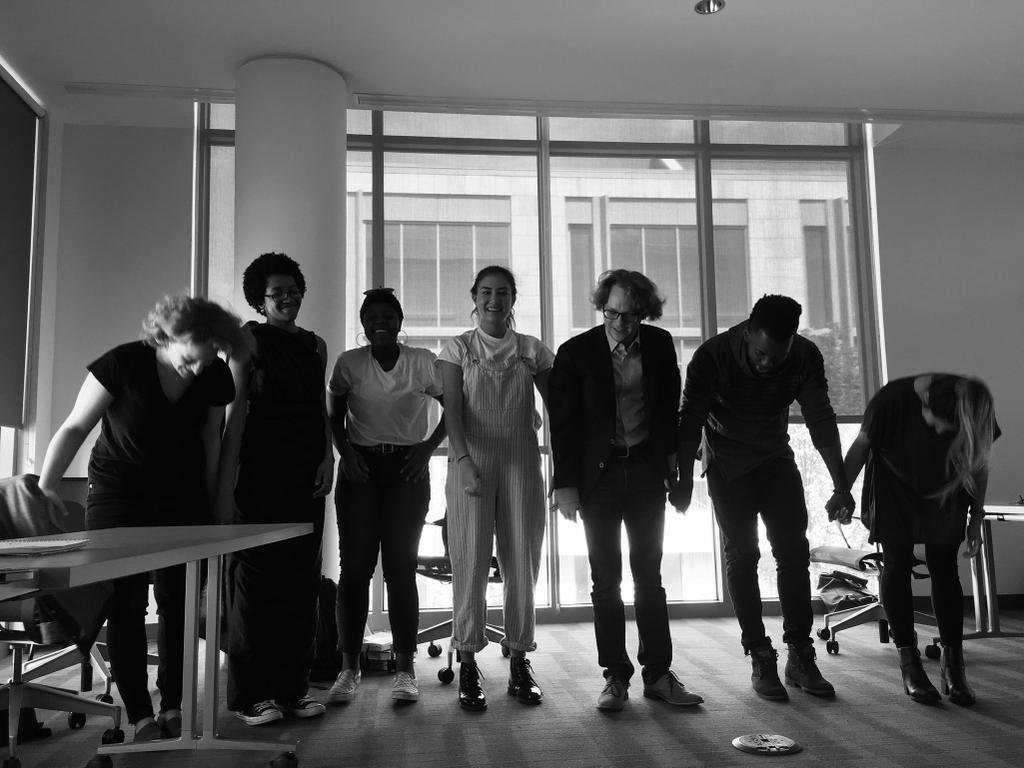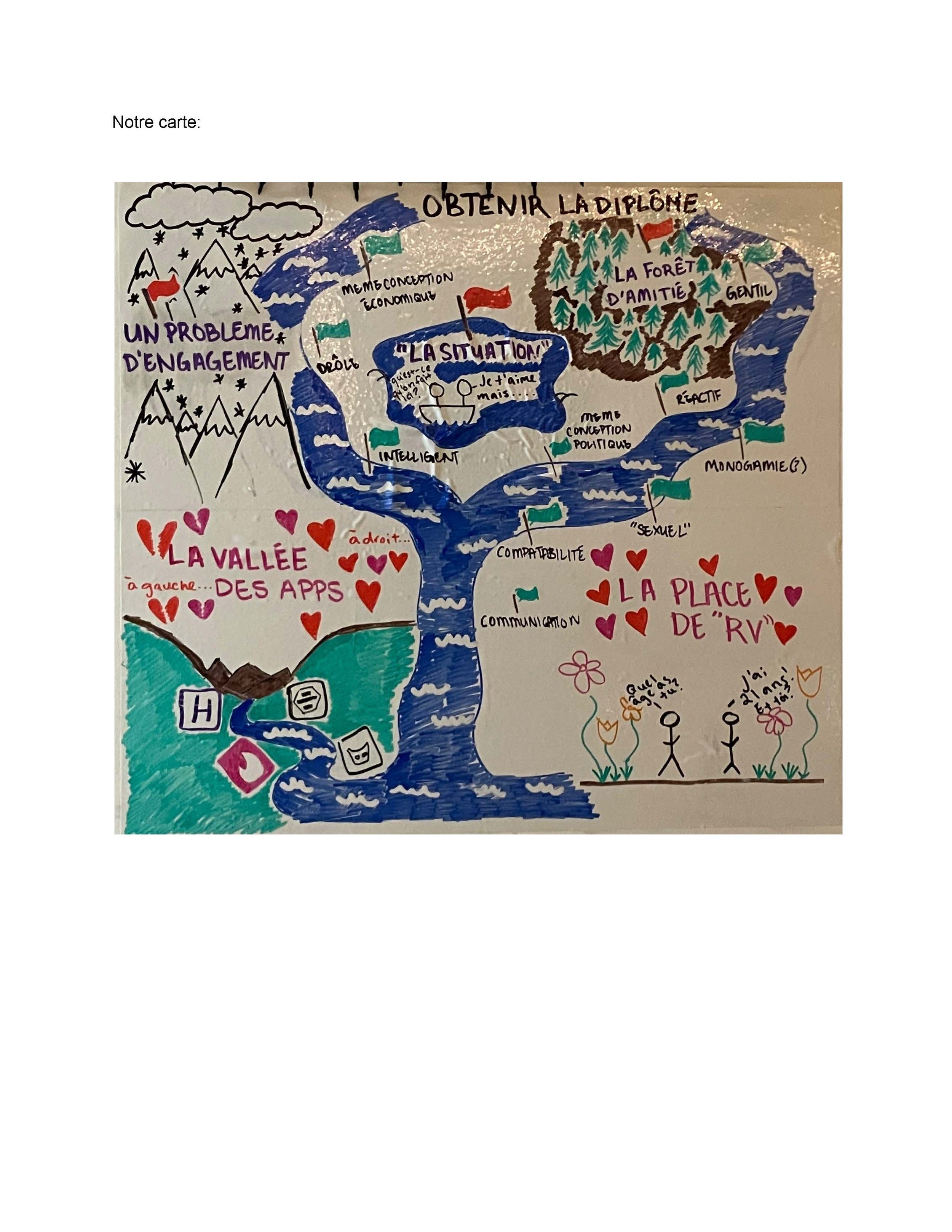One of my most significant accomplishments was to convert my social anger into an intellectual battle. Therefore, my personal background has an impact on the way I conceive education. I shape the content of my courses and I implement equity among students. I work well with a very diverse spectrum of students, —particularly at Rutgers—, and I use pedagogies that not only embrace difference but also, and most importantly, that make use of difference.
Care is, I believe, the most important principle. Having navigated both the French and the American educational systems, I am particularly sensitive to First Generation Students (I personally understand the pride tainted with shame associated with this journey). I encourage my students to consider their professional goals and dreams, a component that is essential to graduate students because some of them do not envision an academic career and I help them think about other options.
Commitment is for me another core value. I see teaching as a true act of citizenship and I consider it my duty to pass on my knowledge and make it accessible. At Rutgers, I developed strong skills in self-assessment. For the past height years I have been reflecting on the content and the relevance of my classes. In my courses, I incorporate content that is important to the students’ learning process but also relevant to them. Since I focus most of the time on the ancient centuries, I explain to them how the French democracy relies on older structures that the French Revolution did not fully abolished.
Above all, I believe in the personal talents of each of my student. Therefore I use their personal skills (performative arts, visual arts, music) to enhance my teaching. I collaborate with them to create videos, podcasts and plays, which is a way to share our work at the end of the semester with people outside of class or far from academia.
Teaching Philosophy

Teaching La Carte de Tendre
American Students are asked to think about relationships nowadays in light of Scudéry, Racine and the complex notion of “galanterie”. These are some of the maps they created.
Arielle Sawyer
Cassidy S Mott-Zarayah-Williams
Camila Correa
Teaching Samples
French Fairy Tales through the Female Gaze
A podcast series
Thanks to the Humanities Plus Award I received in 2021, I envisioned a podcast series on Women’s Empowerment for a new course called ‘‘#HerToo. When Women Reclaim Fairy Tales”.
My students and I used the platform Anchor to host it: Listen to the entire series here
Dream
〰️
Learn
〰️
Make
〰️
Dream 〰️ Learn 〰️ Make 〰️
Performing 17th century French Theater
Racine, Andromaque, III, 8
Take No For An Answer!
The Art of Not Giving Consent Then And Now
(French 337, Fall 2021)
Saying “no” is never easy. It was even harder when you were born a woman in seventeenth-century France when society (i.e. men) ruled everything from love discourse to conversation and codes of civility. One might ask why we should care if this reality belongs to the past. Recent events in the French cultural sphere have shown that women’s subjugation is not quite relegated to a bygone time. French actresses (Haenel, Ovidie), women writers (Springora, Despentes) and the #MeToo movement have brought questions of female agency and consent to the fore. Fear, guilt, shame or lack of power: the reasons why a woman struggles to say no are numerous. But even when women claim their freedom to resist, they risk remaining inaudible and invisible. Why is it so hard to take no for an answer? Our goal in this course is to deconstruct the ways male expectations and societal norms from the early modern era to the present have imprisoned feminine discourse; this analysis will enable us to craft new tools of rhetorical resistance.
First, we will resurrect and document stories of female refusal in the hopes of demystifying feminine consent. Theater is particularly efficient for this project because it conveys female resistance as speech acts but also as bodily language. We will ground our discussions in key scenes that explore resistance to rape, to male laws, to an assigned passivity. The analysis of rhetorical tools will be both reflexive and creative. We will then focus on the most effective ways to perform resistance. By making video clips, crafting poetry, writing strong exhortations or turning to the visual arts, students will design personal answers to forms of oppression.
Course Materials:
Madame de Villedieu, Manlius, 1662 [ISBN 978-2-8124-4745-7]
Racine, Andromaque, 1667 [ISBN 978-2070466641]
Madame Ulrich, La Folle enchère, 1690 [ISBN 978-2016129777]
Olympe de Gouges, Zamore et Mirza ou L’Esclavage des Noirs, 1785
[ISBN 978-2290001912]
"Non, ne révoquons point l'arrêt de mon courroux",
Le refus d'Hermione dans les rues du New Jersey… (Andromaque, V, 1)
Courses Taught at Rutgers
Undergraduate Courses
Francophilia
Dating before the Age of Tinder:
Six Flirtatious French Plays to Embark on your next romance
#HerToo: When Women Reclaim Fairy Tales
Diam’s, Princesse de Clèves des temps modernes
How the French Invented the Female Gaze?
Early Modern Fairy Tales and their Legacy
Take No For An Answer! The Art of Not Giving Consent Then And Now
Did you mean “no”? When consent is not just a female thing
Aspects of French Literature
Cours de civilisation: Comment peut-on être Français?
Faire sa cour: splendeur et misère des courtisan(e)s du Moyen-Âge à la Révolution française
We Need to Talk! Theater and Polemics in Early-Modern France
The Only Way Out! From the Past to the Stage
Famille je vous hais! Crime et infamie sur la scène classique
Le Silence ou la mort: la scène d’aveu au théâtre
Home, Bittersweet Home
Dangerous Liaisons. Love and Death Before the French Revolution
“Le Style à la lettre” (Institut d’Études Françaises d’Avignon): http://style204.wordpress.com
Graduate Courses:
La curiosité dans la société d’Ancien Régime
Elles ont dit NON ! Désobéissance et Résistance des femmes au XVIIe siècle
Indicible Racine
Survivre à la Séparation? Deuil et fantômes à l’âge classique
Infamille: Crime et rédemption sur la scène tragique















